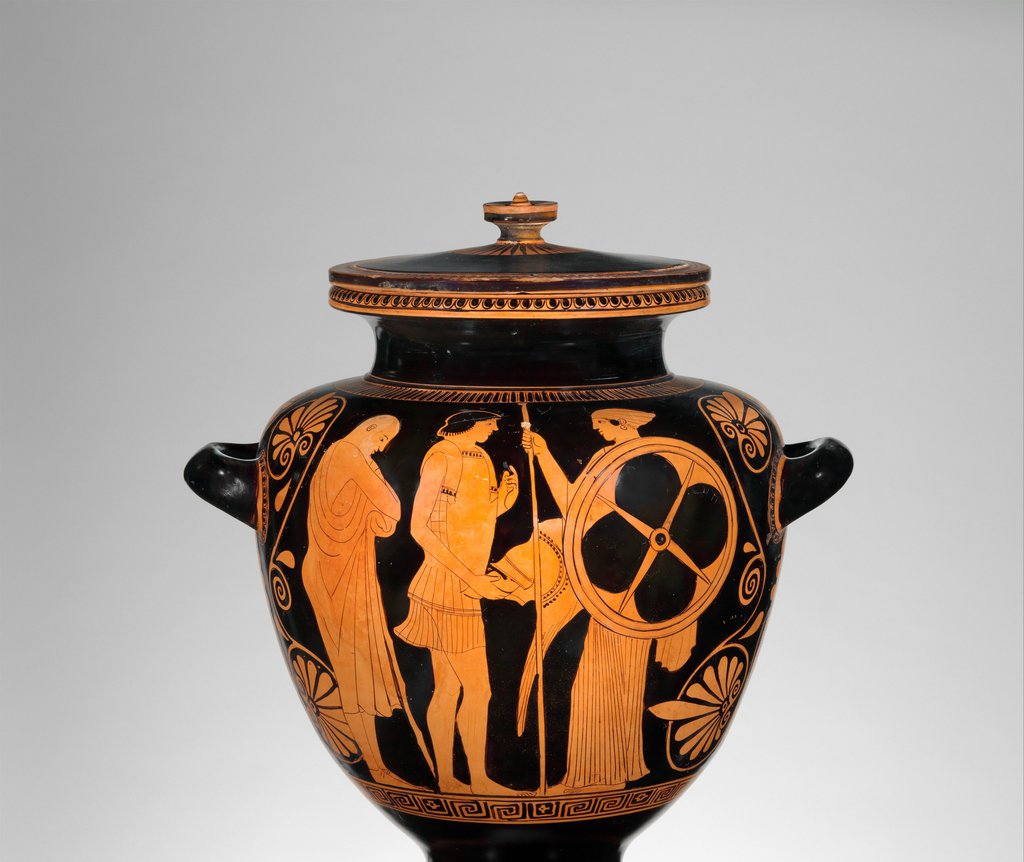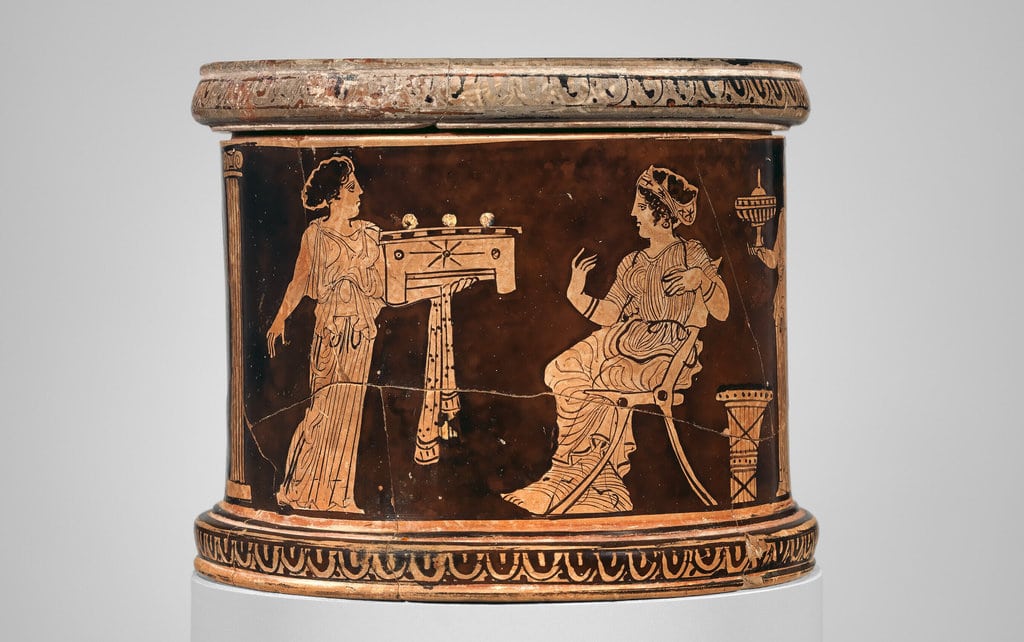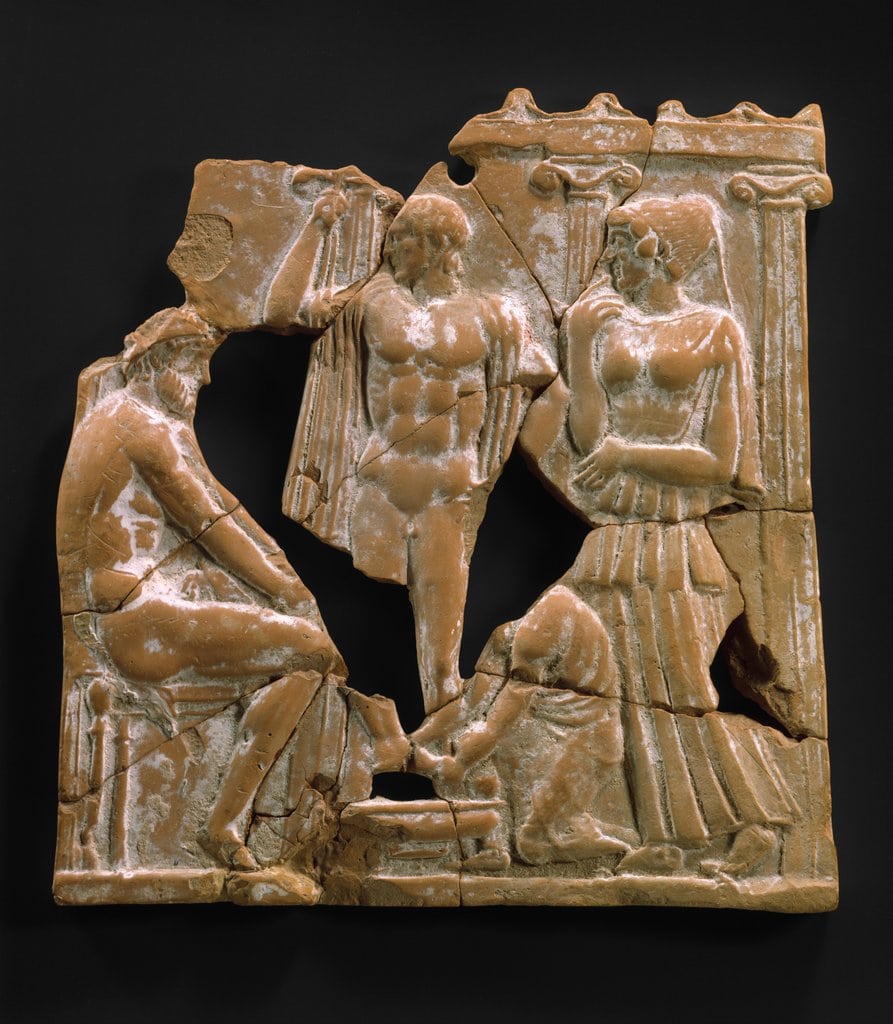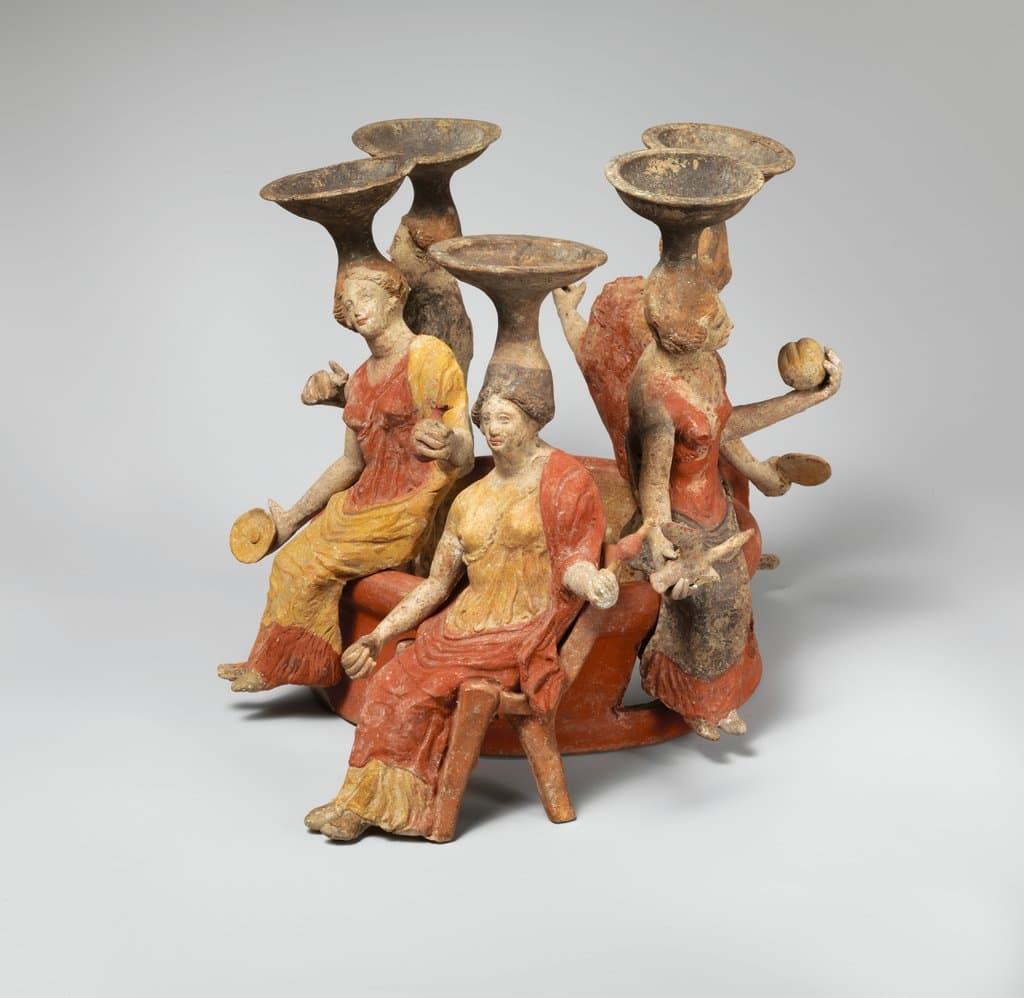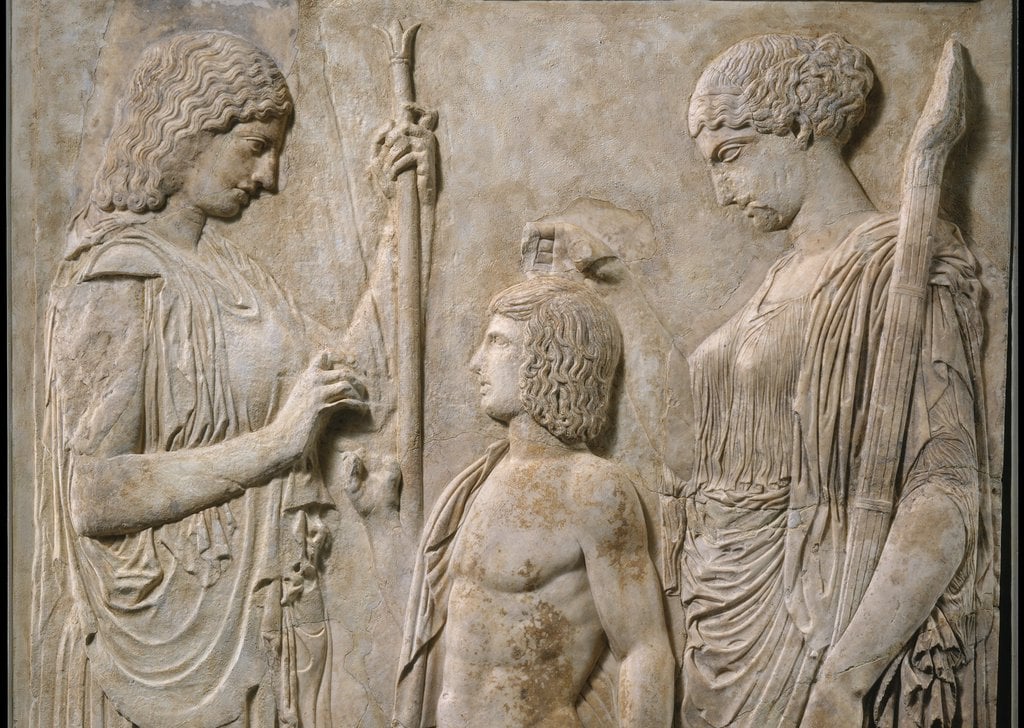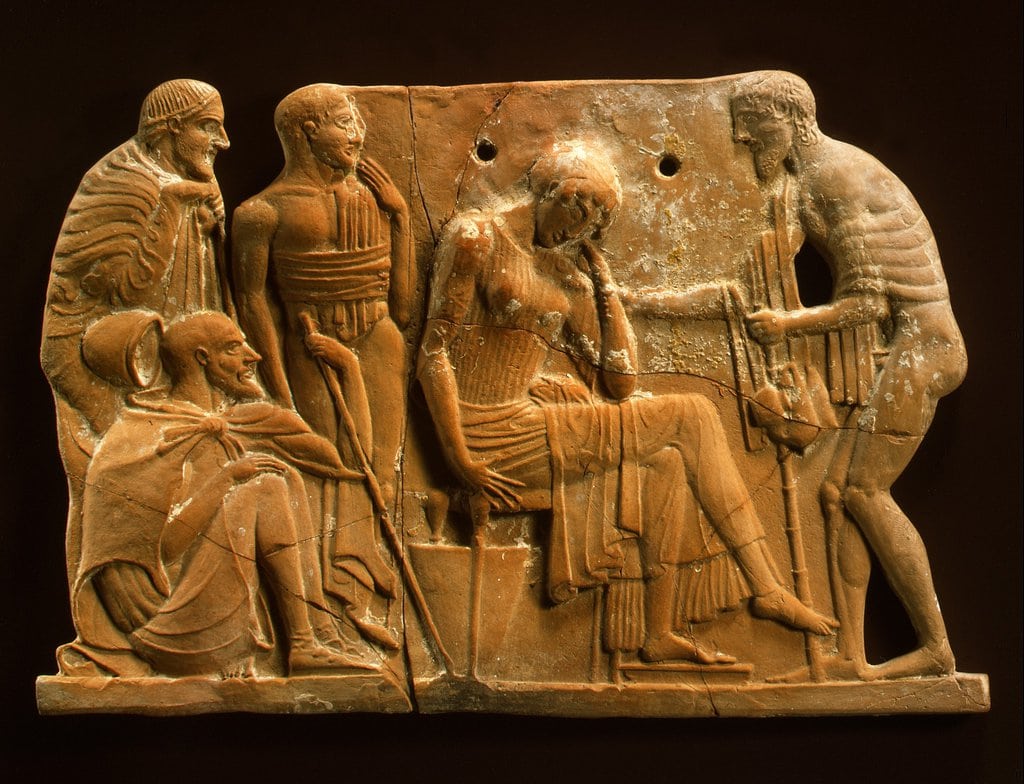The Role of Women in Ancient Greece and the Lives of Ancient Greek Women
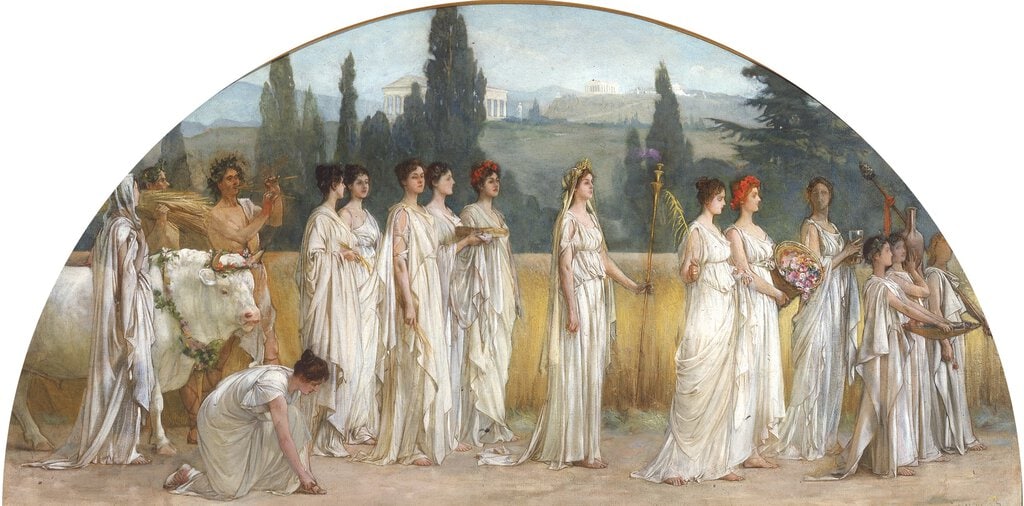
The ideal image of women in ancient Greek society was heavily influenced by notions of femininity, modesty, and domesticity. However, the reality of their lives extended far beyond these prescribed roles, encompassing various daily activities and responsibilities that contributed to the functioning of their households and communities. Despite the limitations imposed upon them, women had opportunities for education and participation in religious and public life. This provided them with a certain level of influence within their spheres of activity. Additionally, their portrayal in literature and mythology shed light on both the societal expectations imposed on them as well as their intrinsic strength and resilience.
Through an exploration of these facets, we gain a deeper understanding of the lasting impact that women had on ancient Greek society within their prescribed roles and through their ability to navigate within or challenge those constraints. “A man and a woman who have a physician’s mind (psyche) have the same nature.” Plato, The Republic.
The ideal image of women in Ancient Greek Society
Physical beauty and chastity in Sparta and Classical Greece
In ancient Greek society, physical beauty was highly prized, particularly for women. The ideal woman was expected to possess physical attractiveness, as well as uphold her chastity and virtue. Spartan women, in particular, maintained these standards by engaging in beauty rituals and maintaining their physical appearance through exercise, while Greek women generally applied skincare, cosmetics, and elaborate hairstyles. Chastity was also crucial, as it reflected a woman’s moral character and integrity.
Submissiveness and Silence of Ancient Greek Women
Women were also expected to be submissive and silent in public settings. Their primary role was to support their husbands and maintain harmony within the household. In the public sphere, women had limited opportunities to voice their opinions or participate in political discussions. This submissiveness was seen as a reflection of a woman’s virtue and piety.
The Influence of Greek Mythology
The portrayal of female characters in Greek mythology reinforced the ideal image of women in ancient Greek society. Myths often depicted women like Penelope, the faithful wife of Odysseus; Andromache, the devoted wife of Hector; and Persephone, the epitome of purity and innocence. These mythological figures served as role models for women, emphasizing traits such as loyalty, devotion, and maternal love.
However, it is essential to note that these ideals were largely unattainable for many ordinary women in ancient Greece. Despite these societal expectations, women played diverse roles within their families and communities that challenged these idealized standards.
The role of women in Ancient Greece and the reality of women’s lives in Classical Greece
Women in Athens were primarily confined to the home. They spent most of their time with the primary duties, which included managing the household, raising children, and overseeing domestic tasks such as cooking and cleaning. This was considered the primary role of women in ancient Greek society, and they were expected to fulfil these responsibilities with grace and efficiency.
In addition to managing the home, women also played a crucial role in producing textiles, which were an essential part of the ancient Greek city-state. They would spend hours weaving fabric on a loom, creating clothing and other textiles for their family. This was a time-consuming task that required great skill and patience, and it was one of the few outlets for creativity that women had in their daily lives.
Furthermore, married women were responsible for attending to the needs of their families, including caring for children, preparing meals, and ensuring that the household ran smoothly. While these responsibilities may seem limiting by modern standards, it is important to understand that women’s role in ancient Greece was deeply embedded in the social and cultural norms of the time. Their contributions were vital to the functioning of society despite being largely overshadowed by those of men.
| Women’s Activities | Responsibilities |
|---|---|
| Managing Household | Cooking & Cleaning |
| Weaving Textiles | Producing Clothing & Fabrics |
| Caring for Children | Ensuring Smooth Household Functioning, |
Education and opportunities for women in Ancient Greece
In ancient Greece, the education and opportunities for women differed greatly from those of men. While boys were formally educated in subjects such as mathematics, philosophy, and rhetoric, girls received limited schooling that focused primarily on domestic skills. Despite this educational inequality, some opportunities for women to gain knowledge and personal development did exist, which depended on their social class.
Informal education
For most women in ancient Greece, formal education was not an option. Instead, they were taught by their mothers and other female relatives how to manage a household, care for children, and perform domestic duties. This informal education was essential for women’s success in their future roles as wives and mothers.
Opportunities for learning
Although the educational opportunities for women were restricted, there were exceptions. Some wealthy families in classical Greece provided private tutors for their daughters to learn reading, writing, music, and dance. Additionally, women were educated and gained knowledge through interactions with male family members or participation in religious ceremonies and festivals. These experiences allowed a select few women to broaden their horizons beyond traditional domestic responsibilities.
The limited education and opportunities for women in ancient Greece reflected the prevailing belief that a woman’s primary role was within the home. Despite these restrictions, some women were able to acquire skills and knowledge that empowered them to participate more fully in society.
The influence of educated women was felt not only within their families but also in areas such as religion and public life. This subtle impact illustrates the resilience of women’s role in ancient Greek society.
The role of women in religious and public life
In ancient Greece, women played a significant but limited role in religious festivals and public life. While men dominated the political and civic spheres, women still had important roles within the religious context.
In religious life, women could attend and even take part in various rituals and festivals dedicated to female deities like Demeter, Athena, and Aphrodite. They also had an active role in domestic cults, where they would perform rituals within the home to honour household gods and goddesses. Additionally, women were involved in mystery cults such as the Eleusinian Mysteries, where they had specific roles and responsibilities.
Public life for women in ancient Greece was primarily confined to their roles as wives and mothers. They did not have rights or opportunities to participate in politics or hold public office. However, some women of high social status were able to exert influence indirectly through their relationships with influential men.
Despite these limitations, there were some exceptions where women exerted their influence on public life. For example, some women were known for their patronage of the arts and cultural events, providing financial support for festivals or artistic endeavours.
Furthermore, one of the main features of the Greek religion revolved around an oracle, a priestess at the temple of Delphi who would provide the listener with prophecies. The priestess would be selected to serve as the oracle, chosen from among their order by other priestesses.
Overall, however, while the role of women in religious and public life was restricted in ancient Greece, they still played important roles within these spheres of society. Their involvement in religious rituals and the ability to influence certain aspects of public life are part of what shaped the historical context of women’s role in ancient Greece.
Women in Ancient Greek literature and mythology
‘The Role of Women in Ancient Greece’ in literature and mythology in ancient Greece played a significant role in shaping the portrayal and reality of women in society. The works of poets, playwrights, and storytellers provided insight into the perceived roles and characteristics of women during that time. In literature, women were often depicted as either virtuous and chaste or cunning and deceitful, reflecting the complex societal attitudes towards women.
One of the most well-known portrayals of women in ancient Greek literature is found in Homer’s epic poem, The Odyssey. Characters such as Penelope and Helen are showcased as loyal wives, while others like Circe and Calypso are portrayed as powerful enchantresses. These representations reveal the duality of women’s roles: they were expected to be faithful and devoted to their families, yet they also possessed a certain allure and influence over men.
In mythology, women were often depicted as both nurturers and destroyers. Goddesses such as Athena, Artemis, and Aphrodite represented different aspects of femininity, from wisdom to passion. The stories surrounding these goddesses served as a reflection of the diverse roles that women played in ancient Greek society. Despite being fictional characters, these representations had a profound impact on the perceptions of real-life women during that era.
| Women’s Role | Portrayal |
|---|---|
| Virtuous Wives | Loyal and devoted |
| Enchantresses | Powerful and alluring |
| Goddesses | Nurturers and destroyers |
Conclusion
In conclusion, ‘The Role of Women in Ancient Greece’ was deeply entrenched in societal norms and expectations, with a stark contrast between the idealized image of women and the reality of their lives. Despite being largely confined to the domestic sphere and having limited opportunities for education and participation in public life, women still managed to exert influence in various ways that left a lasting impact on ancient Greek society.
While women were celebrated in literature and mythology as goddesses, heroines, and muses, the reality of their lives was often one of domestic duties and child-rearing. However, women found ways to assert themselves through religious practices and rituals, as well as in private gatherings where they could exercise some degree of influence. Their resilience and resourcefulness in navigating the constraints of their society further underscore the significant role they played in shaping ancient Greek culture.
The legacy of The Role of Women in Ancient Greece can still be felt today, as their portrayal in literature, mythology, art, and religious practices continues to inspire contemporary discussions about gender roles and equality. The study of ‘The Role of Women in Ancient Greece’ provides valuable insights into the complexities of gender dynamics and serves as a reminder of the enduring influence that women have had throughout history.
Frequently Asked Questions
What was the ideal woman in Ancient Greece?
The ideal woman in Ancient Greece was expected to be obedient, chaste, and focused on managing the household. She was not involved in public life, and her main role was to bear children and take care of the family.
What was the difference between Athenian and Spartan women?
In Athens and Sparta, life was different. Women in classical Athens, though the birthplace of democracy, were extremely restricted. Athenian society restricted women inside their houses, whereas Spartan women enjoyed legal rights and had a voice in every facet of Spartan society. Women who lived in Sparta often participated in physical training, partaking in similar rigorous regimes as their male counterparts.
Could women inherit property?
Due to the position of women in Greek society, they generally could not inherit property; however, women in Sparta could. Women in Sparta enjoyed a more significant ger degree of autonomy. This was due to the frequency of male deaths due to the Spartan system being war-like in nature, resulting in a class of women who were, for the most part, extremely powerful and wealthy. Athenian women, on the other hand, were restricted.
What was the role of female slaves in Ancient Greece?
Female slaves in Ancient Greece had various roles depending on their skills and the needs of their owners. They could work as household servants, agricultural labourers, or even as companions for their wealthy mistresses.
What was the goal of every Greek wife?
The goal of every Greek wife was to manage the household efficiently, bear healthy children – preferably sons – and support her husband in his social and political interactions. A successful wife brought honour to her family.
What did Female children do in Ancient Greece?
Female children in Ancient Greece were generally raised at home by their mothers until they reached adolescence. They were taught domestic skills like weaving, cooking, and managing a household to prepare them for their future roles as wives and mothers.
What was life like for a girl in Ancient Greece?
Life for a girl in Ancient Greece revolved around preparing for marriage and motherhood. Education was limited, they were not allowed to participate in public life, and their main focus was on learning domestic skills to become successful wives in the future.
What were the characteristics of Odyssean women, and how did that affect Greek society?
Penelope – loyal and patient
Kalypso (Calypso) – obsessive and domineering
Kirke (Circe) – alluring and deceitful
Nausicaa – innocent and youthful
Athena – wise and rational
The Odyssey emphasizes the importance of hospitality as a core value. This social custom was prevalent in nearly all pre-modern societies and essential to ancient Greek social structure. Hospitality, also known as ‘guest-friendship’ or ‘xenia’, was a social obligation expected of men and women in the Greek world.
For further analysis of Homeric characters in the Odyssey, see our article ‘Circe the so-called Evil Witch in The Odyssey by Homer’ regarding Circe. Also, see our ‘Witchcraft Special Edition’ magazine Issue 8 (July 2023) to learn more about ancient and traditional Witchcraft.
